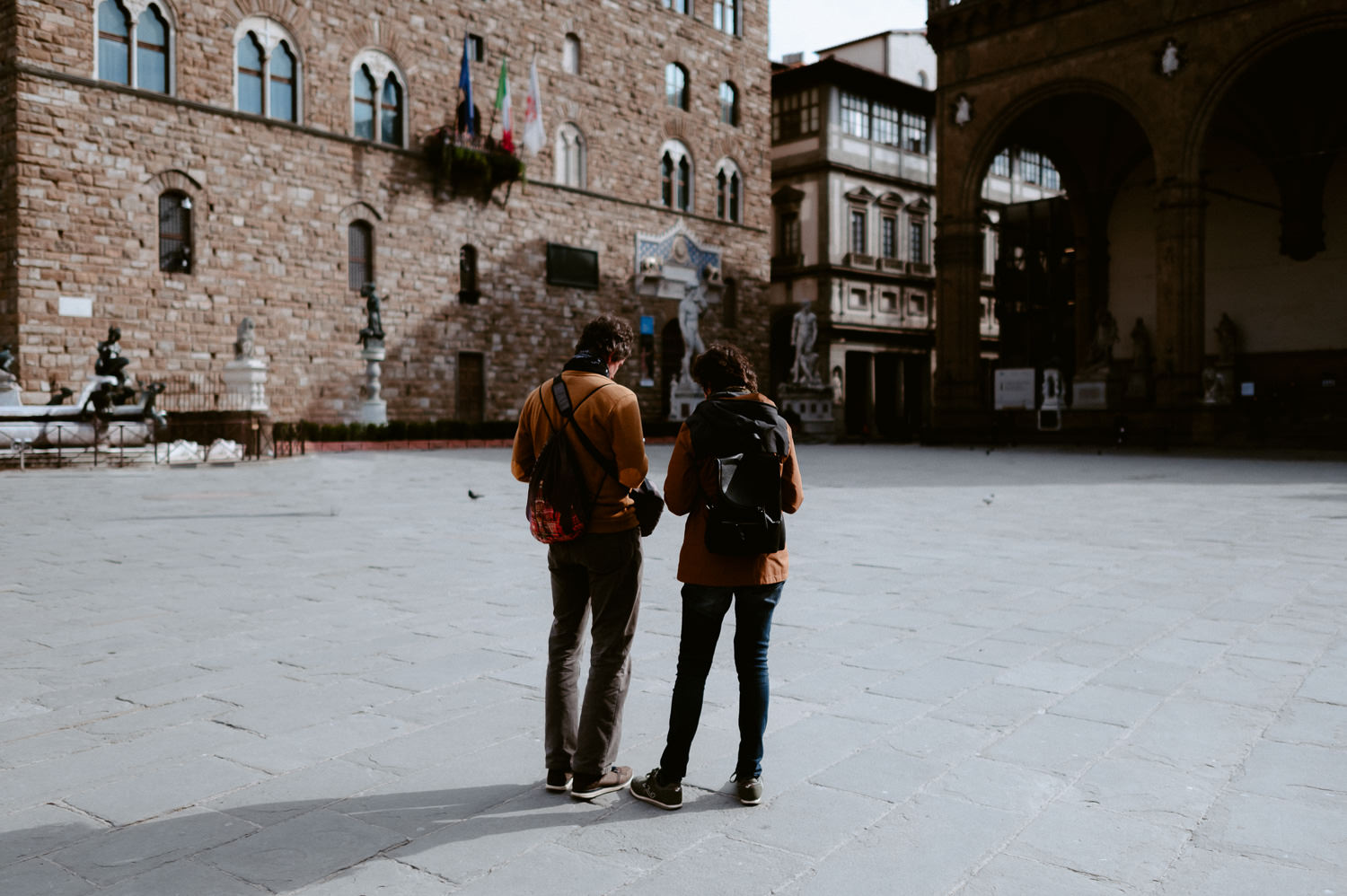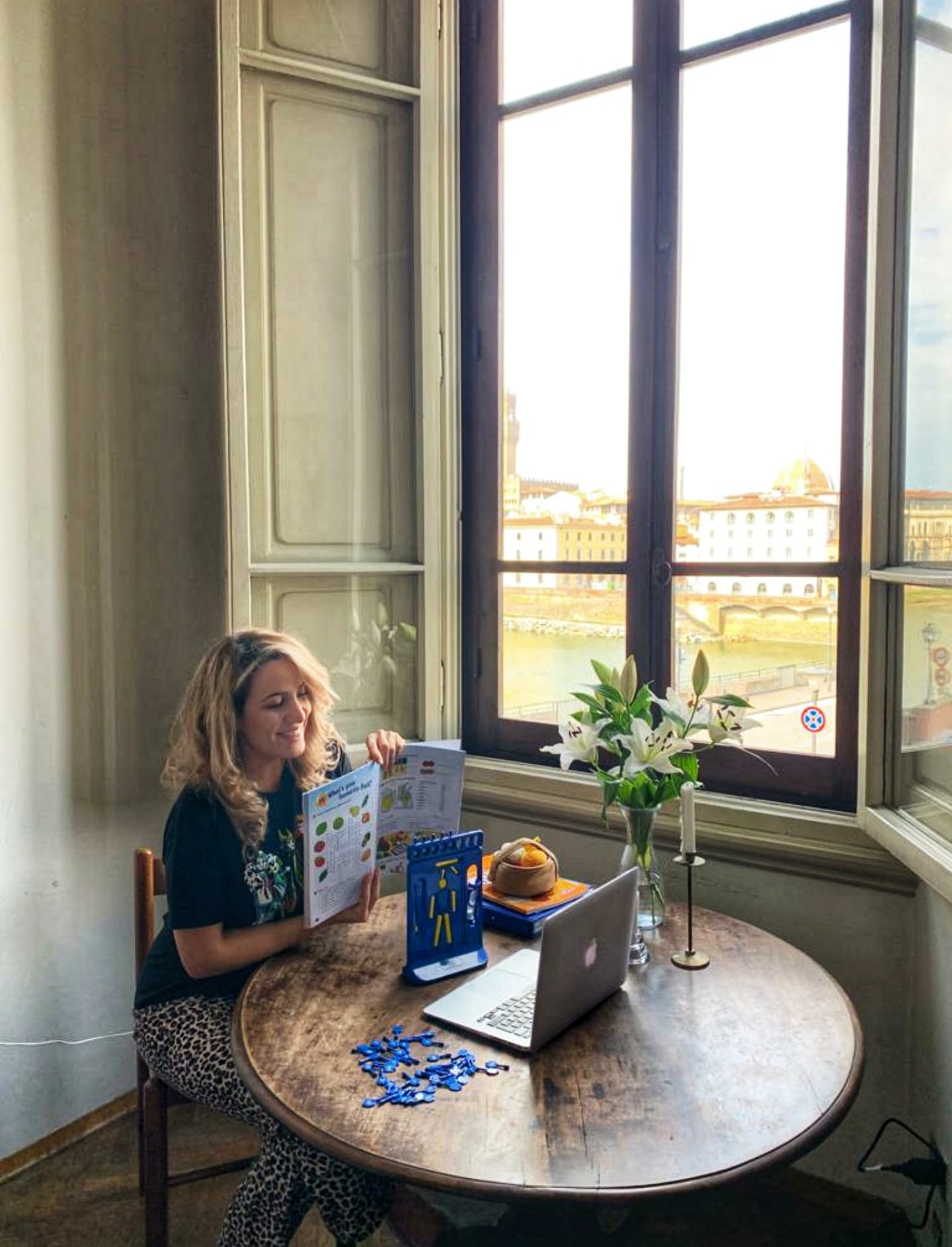I’ll go back to Wednesday, March 4. I was administering Cambridge exams in the small, beautiful Tuscan medieval towns of Monteriggioni and Colle di Val D’Elsa. Halfway through the first session, the news came through that the Italian government was thinking of closing the schools. We continued with the second session, got back to Florence and went into the office at 5pm. Still no official news. The phones are ringing. Students and staff are asking for information and we wait glued to our screens until it is finally announced at 7pm. The schools are to close with immediate effect. My mind is whirring. Colleagues are asking, “What are we going to do?” I can’t remember what time I got home or how much I slept, but by Thursday 5, I had a plan.
At The British Institute of Florence, we currently have running over 200 English courses with about 2,000 students of all ages starting from age five. We suspended all courses on March 5 and set to work contacting everyone, explaining the plan and getting permission to pass their mobile phone numbers on to the teachers. In the first instance we would set up class groups on WhatsApp to hold the lessons. We worked flat out on Thursday to get the first ones set up for Friday. Then Friday for Saturday. Some teachers and students needed support as they weren’t that familiar with the messaging platform. I remember the sense of euphoria in the staffroom at 4.30pm on the Friday after we had held 20 lessons via WhatsApp. It was our biggest test. The students loved it and the teachers, too. That was when I realised the plan could actually work.
Then at 6pm we received communication from Cambridge English that all exams would be cancelled with immediate effect. We had three exam sessions at 9am the next day, so we set to work to contact all of the candidates.
Saturday March 7 and we were back in the office for 7.30am. Saturday is one of our busiest days with lots of adult courses—all of them to be moved online. Some adults weren’t happy; a couple were rather aggressive. But never mind, we work to get those who want to join into the “lessons” and try to ignore the small minority who want to complain. Saturday comes to a close. Exhausted but feeling a sense of achievement and the thought of a day off on Sunday, I head for home, where the Prime Minister is making a new announcement. More restrictions. All cultural activities have to close. That means the library and the Italian and Art History departments. Sunday, March 8 is spent contacting our non-Italian students to say that their face-to-face course is cancelled and the school closed, but that we will be moving the lessons to an online platform. We also advised them to leave Italy. After that I had a trip to the supermarket where the shelves were looking suspiciously empty.

Piazza della Signoria, March 10, 2020 / Ph. Francesco Spighi
Monday 9th. Half of the British Institute is closed. We are going to try and keep the language departments operating as much as possible. All staff come in to collect what they need because we have decided to have everybody working from home. Teachers wheel in suitcases to take home their books. It’s a hive of activity until lunchtime but the wave of tiredness hits as I say goodbye to one colleague after another. Florence is deserted and silent like you have never seen it before. I arrive home just in time for another announcement from the Prime Minister. The whole of Italy is on lockdown for 2 weeks. With hindsight, we had closed in the nick of time. We took the decision before it was enforced and had time to prepare for it.
Now accustomed to the full lockdown, all this has become the new normal. Nearly all our students have taken to the online lessons with enthusiasm. We have switched to video lessons and the teachers are revelling in the new opportunities they are finding.
Comments from teachers and students of The British Institute of Florence

An online lesson in progress from The British Institute of Florence
“Video conferencing has helped my classes to work as a team and one of my students said, ‘it’s just like being at school’. I can share videos and audio instantly and we laugh a lot and learn from each other in a more intimate way.’
—Peter Dulborough, Advanced English teacher
“This uneasy state of emergency has sadly cooped us students up at home. Not only have the online classrooms allowed us to keep on moving forward with our studies, but also feel human connectedness as if we were physically together.”
—Giulia Borri, adult student
“We made a Father’s Day card from a distance! Mika enjoyed the lesson a lot and her father was really moved by the beautiful surprise. It’s indeed the best part of the week for Mika.
—Parent of one of our younger students, aged eight
“The Covid-19 pandemic has completely changed our life, especially our daily routine. I’m an ICU doctor, so I have to come face to face with the terrible consequences of Covid-19. In this context, spending two hours twice a week with my English class and my teacher, Lee, gives me the possibility not to lose my dream of learning English.”
—Lucia, First Certificate student
GET YOUR FREE DOWNLOAD OF “HEALING NOT BROKEN”, A SPECIAL ISSUE OF THE FLORENTINE.






